As an investor, you’re likely familiar with the term “blue chip stocks.” Just like in poker where blue chips hold the highest value, blue chip stocks in Malaysia represent the cream of the crop. But what exactly are they, and where can you find them?
In this article, we’ll delve into the world of Malaysian blue chip stocks, discussing their benefits and drawbacks to help you make informed investment decisions. Stay tuned to uncover the potential of these prestigious stocks in your investment portfolio.

What are Blue Chip Stocks?
Blue chip stocks represent shares in large, well-established companies with a proven track record of robust financial performance. Known for their resilience during tough market conditions and ability to deliver high returns in favorable conditions, blue chip stocks are considered the strongest and largest stocks on Bursa Malaysia or their respective national markets. In essence, these stocks offer investors stability and reliability within their investment portfolios.
How to Identify Blue Chip Stocks in Malaysia?
With numerous stocks available for investment, identifying blue chip stocks is crucial for those seeking good-performing stocks. But what makes a company’s stock a blue chip?
Several criteria can help identify blue chip companies, including:
- A well-established company with consistent annual revenue over an extended period.
- A stable debt-to-equity ratio.
- The average return on equity (RoE).
- Interest coverage ratio.
- Market capitalization.
- Price-to-earnings ratio (PE).
By considering these factors, you can better assess which companies offer blue chip stocks for your investment portfolio.
Best Blue Chip Stocks in Malaysia
According to iSaham, there is a list of blue chip stocks that form a significant portion of the FBMKLCI index. For more comprehensive information on these stocks, be sure to visit the iSaham official website. Keep in mind that stock listings and rankings may change over time, so always do your due diligence before making any investment decisions.
Maybank (Malayan Banking Berhad)
Malayan Banking Berhad (Maybank) is one of the largest banking and financial services providers in Malaysia and Southeast Asia. With a market capitalization of RM83,751 million, the company has a significant presence in the region. Maybank has 11,049 million shares outstanding, and its operations are divided into several segments, including retail banking, investment banking, insurance, takaful, and other financial services.

Business Segments
- Retail Banking: Maybank’s retail banking division offers a comprehensive range of products and services to individual customers, such as savings and current accounts, personal loans, mortgages, credit cards, and wealth management services. This segment also provides banking services to small and medium-sized enterprises (SMEs).
- Investment Banking: The investment banking segment provides corporate finance, advisory services, capital market solutions, and securities trading services to large corporations, governments, and institutional clients.
- Insurance: Maybank’s insurance division, known as Etiqa, offers a wide range of insurance products, including life, health, and general insurance, catering to the needs of individual and corporate clients.
- Takaful: Maybank provides Islamic-compliant insurance products and services, known as takaful, to cater to the growing demand for Shariah-compliant financial services in the region.
- Other Financial Services: This segment includes asset management, trustee services, leasing, and factoring services, catering to various customer needs.
Growth Prospects
Maybank’s growth prospects are driven by several factors, including the increasing demand for digital banking services, regional expansion, and the growing Islamic finance market. The bank’s investments in digital transformation and innovation, such as mobile banking and fintech partnerships, will likely enhance its competitive advantage and attract more customers.
Risks and Challenges
Maybank faces various risks and challenges, such as economic fluctuations, regulatory changes, and cybersecurity threats. As a stock analyst, it is essential to monitor these factors and their potential impact on the company’s financial performance and growth prospects.
In conclusion, Malayan Banking Berhad offers a diverse range of banking and financial services, which positions the company well in the growing Southeast Asian market. Investors should consider the company’s financial performance, growth prospects, and potential risks before making investment decisions.
YOUR CAPITAL IS AT RISK
Harta (Hartalega Holdings Berhad)
Hartalega Holdings Berhad is one of the world’s largest and most reputable manufacturers of nitrile and latex gloves. With a market capitalization of RM69,526 million and 3,333 million shares outstanding, the company has established a strong presence in the global glove market. Hartalega focuses on producing high-quality gloves for various industries, including healthcare, food service, and industrial applications.
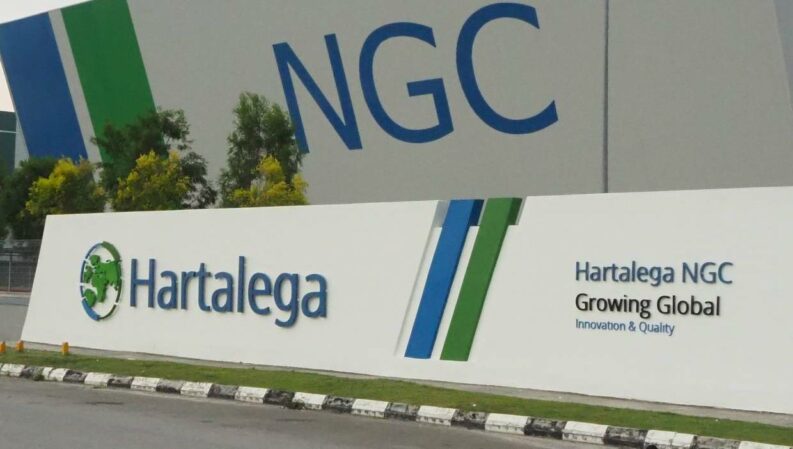
Business Operations
Hartalega’s primary business operations are centered around the manufacturing and distribution of gloves. The company has a strong emphasis on research and development, investing in advanced technology and production techniques to maintain its competitive edge. This commitment to innovation has allowed Hartalega to develop and produce a diverse range of gloves, catering to different customer needs and preferences.
Growth Prospects
Hartalega’s growth prospects are driven by several factors, including the increasing demand for gloves worldwide, particularly in the healthcare sector, due to the growing awareness of hygiene and safety standards. Additionally, the company’s commitment to innovation and technological advancements will likely enhance its competitive advantage and enable it to develop new products that cater to emerging market needs.
Risks and Challenges
Hartalega faces various risks and challenges, such as fluctuations in raw material prices, foreign exchange rate volatility, and increased competition in the global glove market. As a stock analyst, it is essential to monitor these factors and their potential impact on the company’s financial performance and growth prospects.
In conclusion, Hartalega Holdings Berhad is a well-established glove manufacturer with a strong market presence and a focus on innovation. Investors should consider the company’s financial performance, growth prospects, and potential risks before making investment decisions.
YOUR CAPITAL IS AT RISK
TopGlove Corporation Berhad
Top Glove Corporation Berhad is one of the world’s largest manufacturers and traders of rubber gloves, with a focus on producing high-quality gloves for various industries, including healthcare, food service, and industrial applications. Founded in 1991 and based in Klang, Malaysia, the company has a market capitalization of RM68,198 million and 2,560 million shares outstanding.

Business Operations
Top Glove operates through several business segments, including manufacturing, trading, and others. The company’s manufacturing segment is primarily responsible for the production of natural rubber latex gloves, nitrile gloves, and other types of gloves. Top Glove’s trading segment focuses on distributing gloves and other related products to customers worldwide.
The company has an extensive global footprint, with manufacturing facilities in Malaysia, Thailand, China, and Vietnam, as well as sales offices across Asia, Europe, and the Americas. This international presence allows Top Glove to effectively cater to the needs of its diverse customer base.
Growth Prospects Top Glove’s growth prospects are driven by several factors, including the increasing demand for gloves worldwide, particularly in the healthcare sector, due to the growing awareness of hygiene and safety standards. The company’s extensive global presence and manufacturing capabilities will likely enable it to capture a larger market share in the expanding glove market.
Risks and Challenges Top Glove faces various risks and challenges, such as fluctuations in raw material prices, foreign exchange rate volatility, and increased competition in the global glove market. Additionally, labor issues and potential regulatory changes can impact the company’s operations. As a stock analyst, it is essential to monitor these factors and their potential impact on the company’s financial performance and growth prospects.
In conclusion, Top Glove Corporation Berhad is a well-established glove manufacturer with a strong market presence and a commitment to quality and innovation. Investors should consider the company’s financial performance, growth prospects, and potential risks before making investment decisions.
YOUR CAPITAL IS AT RISK
PBBank (Public Bank Berhad)
Public Bank Berhad (PBBank) is one of the largest banks in Malaysia, offering a wide range of banking and financial services, such as retail and commercial banking, investment banking, and wealth management. Founded in 1966 and headquartered in Kuala Lumpur, the company has a market capitalization of RM64,751 million and 882 million shares outstanding. PBBank has a strong regional presence with operations in Hong Kong, the People’s Republic of China, Vietnam, Cambodia, Laos, and Sri Lanka
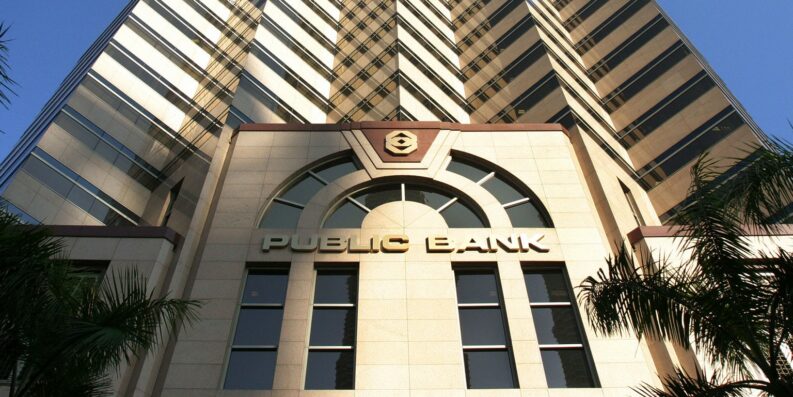
Business Operations
Public Bank Berhad’s business operations are divided into several segments, including:
- Retail Banking: PBBank’s retail banking division offers various products and services to individual customers, such as savings and current accounts, personal loans, mortgages, and credit cards. This segment also provides banking services to small and medium-sized enterprises (SMEs).
- Corporate Banking: This segment caters to the financial needs of large corporations, providing services such as corporate loans, trade financing, cash management, and treasury services.
- Investment Banking: PBBank’s investment banking division offers services such as mergers and acquisitions advisory, equity and debt capital market solutions, and securities trading.
- Wealth Management: The wealth management segment provides investment, insurance, and financial planning services to high-net-worth individuals and institutional clients.
Growth Prospects
PBBank’s growth prospects are driven by several factors, including the increasing demand for digital banking services, regional expansion, and the growing middle class in Southeast Asia. The bank’s investments in digital transformation, such as mobile banking and fintech partnerships, will likely enhance its competitive advantage and attract more customers.
Risks and Challenges
Public Bank Berhad faces various risks and challenges, such as economic fluctuations, regulatory changes, and cybersecurity threats. As a stock analyst, it is essential to monitor these factors and their potential impact on the company’s financial performance and growth prospects.
In conclusion, Public Bank Berhad offers a diverse range of banking and financial services, positioning the company well in the growing Southeast Asian market. Investors should consider the company’s financial performance, growth prospects, and potential risks before making investment decisions.
YOUR CAPITAL IS AT RISK
Tenaga (Tenaga Nasional Berhad)
Tenaga Nasional Berhad is Malaysia’s largest electric utility company, engaged in the generation, transmission, and distribution of electricity. The company operates a mix of thermal and hydropower plants to meet the energy needs of the country. With a market capitalization of RM64,138 million and 5,686 million shares outstanding, Tenaga plays a vital role in the Malaysian energy sector.
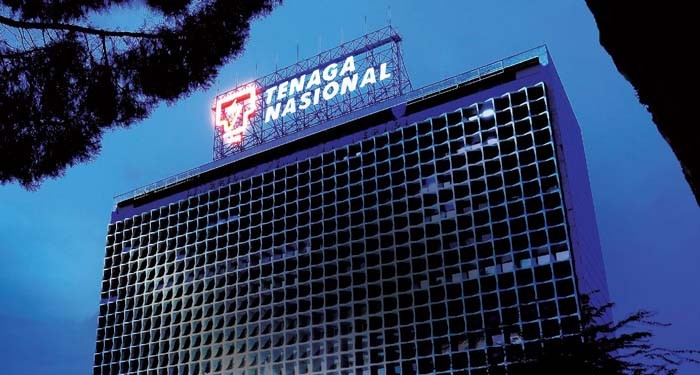
Business Operations
Tenaga’s business operations can be broadly divided into three segments:
- Generation: The generation segment is responsible for producing electricity using various sources, including gas, coal, and hydropower. Tenaga operates multiple power plants across Malaysia to ensure a reliable supply of electricity.
- Transmission: The transmission segment is focused on constructing, operating, and maintaining the high-voltage transmission network that connects power plants to distribution substations.
- Distribution: The distribution segment involves the construction, operation, and maintenance of the low-voltage network that delivers electricity from substations to end consumers, including residential, commercial, and industrial customers.
Growth Prospects
Tenaga’s growth prospects are driven by several factors, including the increasing demand for electricity in Malaysia due to population growth, industrialization, and urbanization. The company’s investments in renewable energy sources, such as solar and wind, will likely enhance its competitive advantage and contribute to the country’s transition toward a more sustainable energy mix.
Risks and Challenges
Tenaga faces various risks and challenges, such as fluctuations in fuel prices, regulatory changes, and the impact of climate change on its operations. The company’s reliance on thermal power plants, primarily gas and coal, exposes it to price volatility in global fuel markets. Additionally, increasing environmental concerns and regulatory requirements may necessitate significant investments in cleaner energy sources. As a stock analyst, it is essential to monitor these factors and their potential impact on the company’s financial performance and growth prospects.
In conclusion, Tenaga Nasional Berhad is a key player in the Malaysian energy sector, with a focus on providing reliable and affordable electricity to its customers. Investors should consider the company’s financial performance, growth prospects, and potential risks before making investment decisions.
YOUR CAPITAL IS AT RISK
Pchem (Petronas Chemicals Group Berhad)
PETRONAS Chemicals Group Berhad (PCG) is an investment holding company and a subsidiary of PETRONAS, Malaysia’s national oil and gas company. PCG is one of the largest integrated petrochemical producers in the country, involved in manufacturing, marketing, and distributing a wide range of petrochemical products. With a market capitalization of RM48,160 million and 8,000 million shares outstanding, PCG plays a significant role in the Malaysian petrochemical industry.
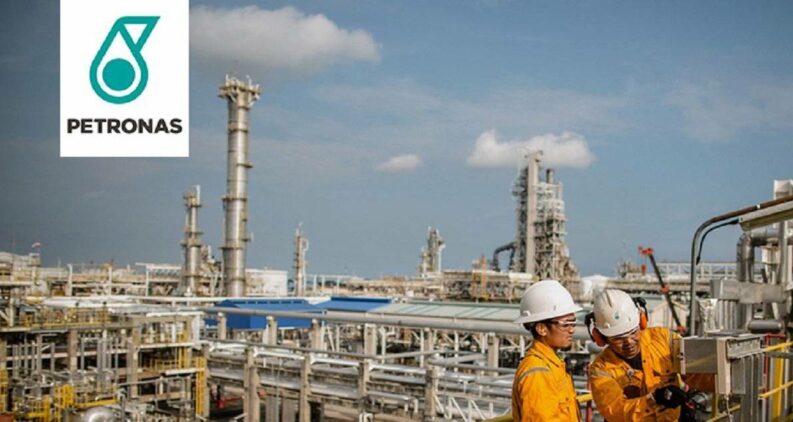
Business Operations
PCG’s business operations can be categorized into several segments, including:
- Olefins & Derivatives: This segment focuses on the production of ethylene, propylene, and their derivatives, such as polyethylene, polypropylene, and other chemicals used in various industries, including packaging, automotive, and construction.
- Fertilizers & Methanol: This segment is responsible for the production of methanol, ammonia, urea, and other related products used in the agricultural industry and various chemical processes.
- Specialty Chemicals: This segment produces and markets a range of specialty chemicals, such as catalysts, additives, and advanced polymers, catering to diverse industries, including electronics, pharmaceuticals, and renewable energy.
Growth Prospects
PCG’s growth prospects are driven by several factors, including the increasing global demand for petrochemical products due to population growth, industrialization, and urbanization. The company’s investments in research and development, as well as its focus on sustainability, will likely enhance its competitive advantage and enable it to develop new products that cater to emerging market needs.
Risks and Challenges
PCG faces various risks and challenges, such as fluctuations in raw material prices, geopolitical uncertainties, and increased competition in the global petrochemical market. Additionally, the company’s operations are subject to strict environmental regulations, and the global shift toward cleaner energy sources may impact the demand for its products. As a stock analyst, it is essential to monitor these factors and their potential impact on the company’s financial performance and growth prospects.
In conclusion, PETRONAS Chemicals Group Berhad is a well-established integrated petrochemical producer with a strong presence in the Malaysian market. Investors should consider the company’s financial performance, growth prospects, and potential risks before making investment decisions.
YOUR CAPITAL IS AT RISK
IHH (IHH Healthcare Berhad)
IHH Healthcare Berhad is a prominent private healthcare provider with a focus on integrated healthcare business and related services. The company operates a network of hospitals, medical centers, and clinics in various countries, primarily Singapore, Malaysia, and Turkey. With a market capitalization of RM47,001 million and 8,769 million shares outstanding, IHH Healthcare plays a significant role in the private healthcare sector in its operating regions.
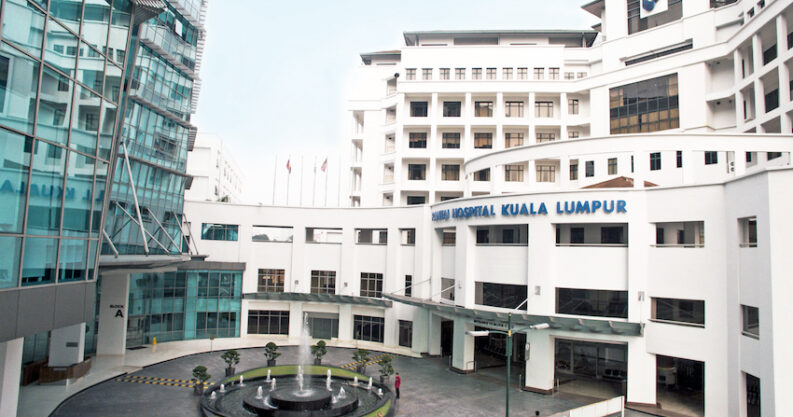
Business Operations
IHH Healthcare’s business operations can be categorized into several segments, including:
- Hospital Operations: This segment is responsible for the management and operation of the company’s network of hospitals, providing a wide range of healthcare services, such as diagnostic imaging, laboratory services, surgery, and emergency care.
- Medical Education and Research: IHH Healthcare is also involved in medical education and research activities, collaborating with various institutions to promote knowledge sharing, clinical research, and the development of healthcare professionals.
- Healthcare Support Services: This segment offers various support services to healthcare providers, such as healthcare IT solutions, facilities management, and supply chain management.
Growth Prospects
IHH Healthcare’s growth prospects are driven by several factors, including the increasing demand for quality healthcare services in its operating regions due to population growth, aging populations, and rising healthcare awareness. The company’s investments in expanding its hospital network and enhancing its service offerings will likely contribute to its long-term growth.
Risks and Challenges
IHH Healthcare faces various risks and challenges, such as fluctuations in currency exchange rates, regulatory changes, and increased competition in the private healthcare sector. Additionally, the company’s operations are subject to strict quality and safety standards, which may necessitate significant investments in infrastructure and staff training. As a stock analyst, it is essential to monitor these factors and their potential impact on the company’s financial performance and growth prospects.
In conclusion, IHH Healthcare Berhad is a well-established private healthcare provider with a strong presence in Singapore, Malaysia, and Turkey. Investors should consider the company’s financial performance, growth prospects, and potential risks before making investment decisions.
YOUR CAPITAL IS AT RISK
Maxis (Maxis Berhad)
Maxis Berhad is an investment holding company and a prominent mobile communications service provider in Malaysia. The company offers a variety of services, including mobile voice, messaging, data, and other value-added services to individual and corporate customers. With a market capitalization of RM40,643 million and 7,816 million shares outstanding, Maxis plays a significant role in the Malaysian telecommunications sector.

Business Operations
Maxis’s business operations can be categorized into several segments, including:
- Mobile Services: This segment focuses on providing mobile voice, messaging, and data services to individual customers, as well as business solutions tailored for corporate clients.
- Fixed Broadband and Voice Services: Maxis also offers fixed broadband and voice services, catering to the connectivity needs of residential and corporate customers.
- Digital Services: The company is continuously expanding its digital services portfolio, including offerings such as mobile wallets, e-commerce platforms, and digital entertainment services.
Growth Prospects
Maxis’s growth prospects are driven by several factors, including the increasing demand for mobile and broadband services in Malaysia due to population growth, digitalization, and the expansion of the country’s digital infrastructure. The company’s investments in network improvements, new technologies such as 5G, and the development of innovative digital services will likely contribute to its long-term growth.
Risks and Challenges
Maxis faces various risks and challenges, such as increased competition in the telecommunications sector, fluctuations in currency exchange rates, and regulatory changes. Additionally, the company’s operations are subject to rapid technological advancements, which may necessitate significant investments in infrastructure and staff training. As a stock analyst, it is essential to monitor these factors and their potential impact on the company’s financial performance and growth prospects.
In conclusion, Maxis Berhad is a well-established mobile communications service provider with a strong presence in the Malaysian market. Investors should consider the company’s financial performance, growth prospects, and potential risks before making investment decisions.
YOUR CAPITAL IS AT RISK
SIMEPLT (Sime Darby Plantation Berhad)
Sime Darby Plantation Berhad is a global leader in the palm oil plantation industry, with a market capitalization of RM34,833 million and 6,84 million shares outstanding. The company’s operations span across several countries, including Malaysia, Indonesia, and Papua New Guinea. Sime Darby Plantation produces approximately 2.48 million tonnes of crude palm oil (CPO) annually, accounting for around four percent of the world’s total CPO output.
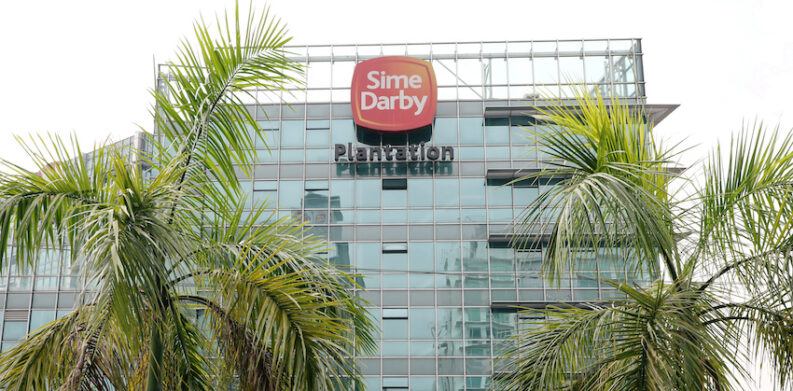
Business Operations
Sime Darby Plantation’s business operations can be categorized into several segments, including:
- Upstream Operations: This segment focuses on the cultivation of oil palm, harvesting, and milling to produce CPO and palm kernel (PK). The company’s extensive plantation area and efficient management practices contribute to its leading position in the global palm oil industry.
- Downstream Operations: This segment involves the refining and processing of CPO and PK into various value-added products, such as cooking oil, oleochemicals, and biodiesel. The company also focuses on developing and marketing specialty fats and oils for food and non-food applications.
- Research & Development (R&D): Sime Darby Plantation invests in R&D to enhance its operational efficiency, yield improvement, and sustainability practices. The company’s research efforts aim to develop new technologies, improve oil palm breeding, and promote sustainable agricultural practices.
Growth Prospects
Sime Darby Plantation’s growth prospects are driven by several factors, including the increasing global demand for palm oil due to its versatile applications in food, cosmetics, and biofuels. The company’s ongoing investments in R&D, operational efficiency, and sustainable agricultural practices will likely contribute to its long-term growth and competitive advantage in the global palm oil market.
Risks and Challenges
Sime Darby Plantation faces various risks and challenges, such as fluctuations in commodity prices, geopolitical uncertainties, and increased competition in the global palm oil market. Additionally, the company’s operations are subject to strict environmental regulations and increasing scrutiny due to concerns over deforestation and greenhouse gas emissions. As a stock analyst, it is essential to monitor these factors and their potential impact on the company’s financial performance and growth prospects.
In conclusion, Sime Darby Plantation Berhad is a well-established and leading palm oil plantation company with a strong presence in the global market. Investors should consider the company’s financial performance, growth prospects, and potential risks before making investment decisions.
YOUR CAPITAL IS AT RISK
MISC BHD
MISC Berhad is a leading shipping and maritime company engaged in ship owning, ship operating, and other activities related to shipping services. The company also owns and operates offshore floating terminals worldwide. Headquartered in Kuala Lumpur, Malaysia, MISC has a market capitalization of RM35,123 million and 4,463 million shares outstanding.

Business Operations
MISC’s business operations can be categorized into several segments, including:
- Energy Shipping: This segment focuses on the transportation of liquefied natural gas (LNG), petroleum, and chemical products, operating a diverse fleet of vessels to cater to the global demand for energy transportation.
- Offshore Business: MISC’s offshore business is involved in the ownership and operation of offshore floating terminals, such as floating production, storage, and offloading (FPSO) units, and floating storage and offloading (FSO) vessels.
- Marine Services: This segment provides various marine-related services, such as ship management, maritime education and training, and ship repair and maintenance.
- Logistics and Support Services: MISC also offers logistics and support services, including integrated logistics, port operations, and marine engineering services.
Growth Prospects MISC’s growth prospects are driven by several factors, including the increasing global demand for energy and the need for efficient transportation of various energy products. The company’s diversified portfolio of shipping services and focus on offshore floating terminals also provides potential growth opportunities in the expanding offshore oil and gas sector.
Risks and Challenges MISC faces various risks and challenges, such as fluctuations in global energy prices, increased competition in the shipping industry, and changes in regulations and environmental policies. Additionally, the company’s operations are subject to various geopolitical risks, such as trade disputes and regional tensions that may affect global shipping routes and demand. As a stock analyst, it is essential to monitor these factors and their potential impact on the company’s financial performance and growth prospects.
In conclusion, MISC Berhad is a well-established shipping and maritime company with a strong presence in the global market. Investors should consider the company’s financial performance, growth prospects, and potential risks before making investment decisions.
YOUR CAPITAL IS AT RISK
Advantages of Blue Chip Stocks
Secure Earnings
Blue chip stocks offer stable earnings over a consistent period when it becomes reliable and earns investors’ trust. Therefore, the stable earnings of these stocks are suitable for investors looking for an investment that provides consistent returns.
Blue chips stocks may not show a constant increase in share prices, but it covers up with uninterrupted dividend payouts over time. In the long run, investors can gain benefits from capital appreciation and also dividend payments.
Robust Financial Database
A typical blue chips stock has a strong financial database with strong balance sheets and cash flows. With this robust fundamental database, it leads to less volatility and minimal risks for investors, which can help you mitigate the risks of your investments.
Disadvantages of Blue Chip Stocks
Low Returns
The returns on blue chips stocks are proportional to their risks, i.e., low-risk low returns. Blue-chips stock provides a high degree of investment safety from their steady business operations with a low-risk investment. Because of this, blue chips stocks are not suitable for aggressive investors who are looking for high returns.
Slow Growth
Blue chips stock may not have a profitable capital gain over time, but the growth is likely to be small and steady. Blue chips stocks may be an ideal investment for investors seeking value accumulation over the long-term due to their slow growth.
Not Focused on Investing
Blue chips stocks are more focused on rewarding the shareholders than reinvesting in the business. Thus, investors who do not need the residual income that comes from these dividends may be better served to go with more aggressive stocks to build wealth.
How to Invest in Blue Chip Stocks in Malaysia?
In addition to doing your research on well-performing companies, you can consult with an investment advisor, or a brokerage firm before buying a blue chip stock. There are numerous online broker platforms available in Malaysia that you can choose from.
Besides buying a stock directly, you may want to invest in a basket of blue-chip stocks through unit trust funds or an Exchange Traded Fund (ETF). However, before you decide on buying a stock, remember to analyze the company’s performance for the last decade to know the dividend payments trend and the reported earnings.
Top 5 Forex Brokers:
Top 5 Crypto Brokers:
Top 5 Stocks Brokers:
Is Blue-Chip Stock The Right Investment for You?
As an investor, before you decide to invest in a blue chip stock in Malaysia, you should first know your investment goals and objectives. Blue-chip stocks are known to be beneficial long-term, as it creates high value to investors who are looking for predictable, steady growth, and consistent returns.
Thus, for those who prefer a safer source of fixed passive income with the benefit of capital appreciation in the long term, blue chip stocks are the right investment. But if you prefer higher-risk investment vehicles that can potentially generate a higher profit in shorter periods, blue chip stocks may not be what you’re looking for.
Nevertheless, there will always be a risk in any investment. You need to understand how blue chips work and find out whether it fits into your investment strategy. First, understand your finances and risk profile, then decide which tools you have to achieve your investment goals.
YOUR CAPITAL IS AT RISK




















